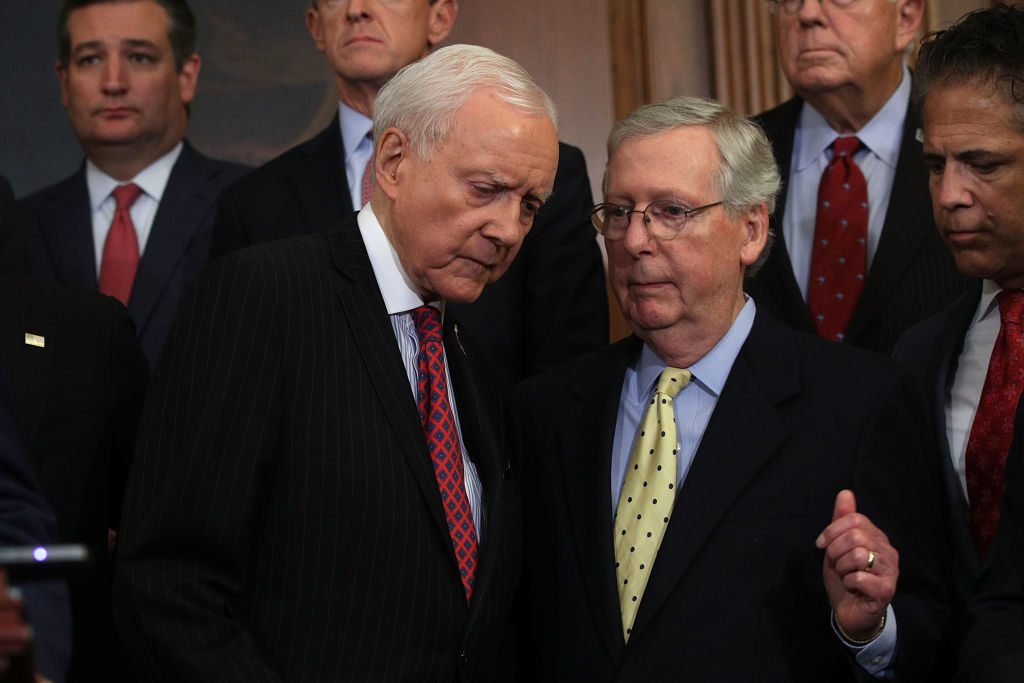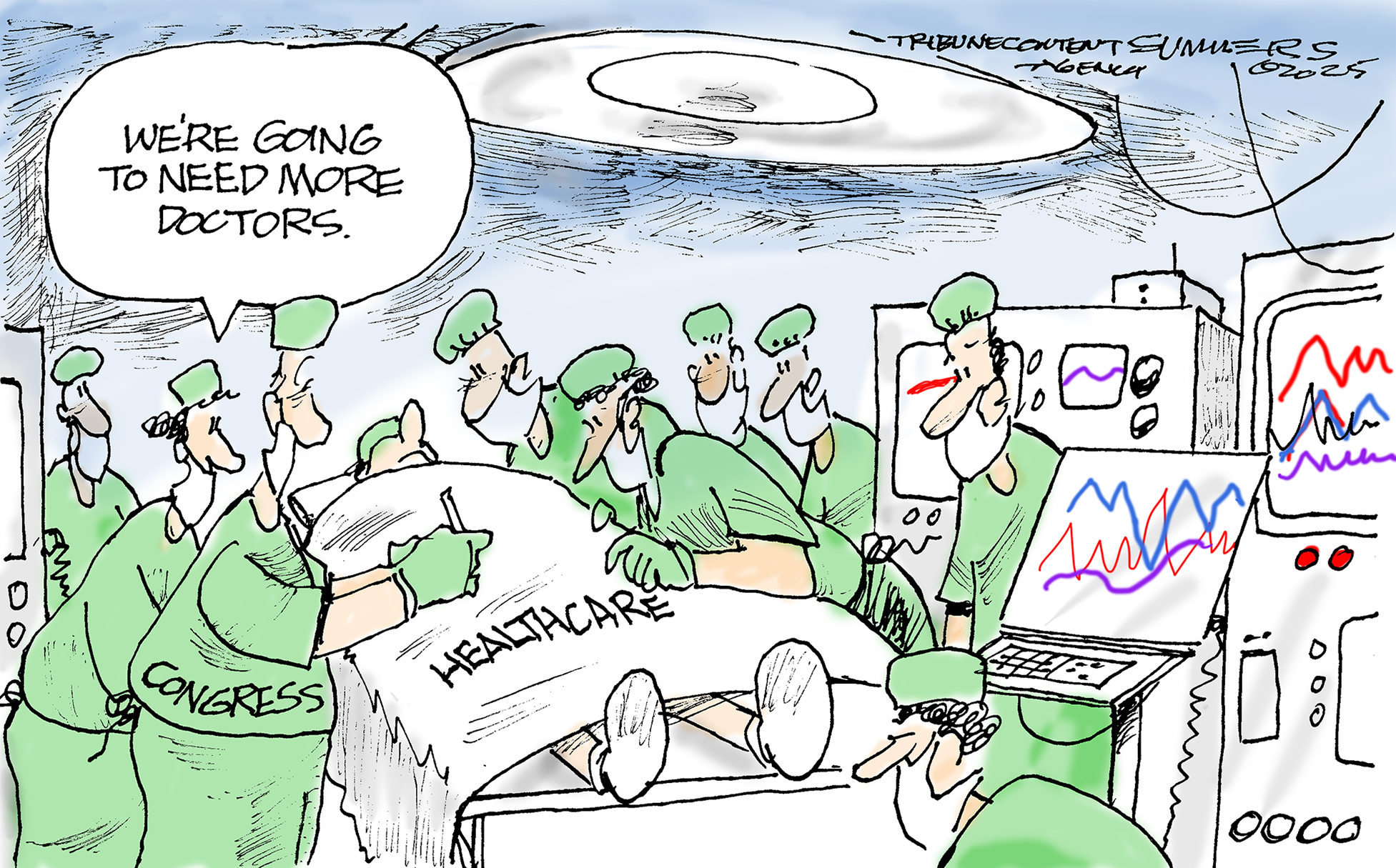The Senate GOP tax bill raises taxes on everyone earning up to $75,000 by 2027, official analysis concludes


Sen. Orrin Hatch (R-Utah) got pretty worked up Thursday night, right before the Senate Finance Committee approved a massive tax package on a party-line vote, when Sen. Sherrod Brown (D-Ohio) said the bill benefits the wealthy at the expense of the middle class — a view widely embraced by Americans. White House Press Secretary Sarah Huckabee Sanders similarly insisted on Thursday that both the Senate and House version, which passed Thursday afternoon, will provide tax cuts to middle-class families, as President Trump has repeatedly promised.
Also on Thursday, the Joint Committee on Taxation, Congress' official nonpartisan tax scorekeeper, estimated that by 2027, everyone making $75,000 or less a year would pay higher taxes under the Senate plan than current law. The tax increases would begin in 2021 for households making between $10,000 and $30,000, and creep up until 2026, when the individual tax cuts — but not the deep cuts to corporate taxes — would expire.
The Senate bill is a big gamble that deep and sustained tax cuts for corporations will spur sharp economic growth, and that businesses will use their windfall on hiring, wages, and investment. But the bill also picks winners — states Trump won, beer brewers, private aircraft businesses, citrus growers, the heirs of the super wealthy — and losers.
The Week
Escape your echo chamber. Get the facts behind the news, plus analysis from multiple perspectives.

Sign up for The Week's Free Newsletters
From our morning news briefing to a weekly Good News Newsletter, get the best of The Week delivered directly to your inbox.
From our morning news briefing to a weekly Good News Newsletter, get the best of The Week delivered directly to your inbox.
Republicans argue that Congress won't actually let the individual tax cuts expire — a provision they added to conform to Senate rules that let them pass the bill with 50 votes if the bill doesn't increase the federal deficit by more than $1.5 trillion. But "middle-class families planning ahead can imagine two possible consequences from that decision," The New York Times notes: "Either an immediate increase in their taxes eight years from now, or an explosion in federal budget deficits, which could necessitate spending cuts to safety net programs like Social Security and Medicare."
A free daily email with the biggest news stories of the day – and the best features from TheWeek.com
Peter has worked as a news and culture writer and editor at The Week since the site's launch in 2008. He covers politics, world affairs, religion and cultural currents. His journalism career began as a copy editor at a financial newswire and has included editorial positions at The New York Times Magazine, Facts on File, and Oregon State University.
-
 Political cartoons for December 13
Political cartoons for December 13Cartoons Saturday's political cartoons include saving healthcare, the affordability crisis, and more
-
 Farage’s £9m windfall: will it smooth his path to power?
Farage’s £9m windfall: will it smooth his path to power?In Depth The record donation has come amidst rumours of collaboration with the Conservatives and allegations of racism in Farage's school days
-
 The issue dividing Israel: ultra-Orthodox draft dodgers
The issue dividing Israel: ultra-Orthodox draft dodgersIn the Spotlight A new bill has solidified the community’s ‘draft evasion’ stance, with this issue becoming the country’s ‘greatest internal security threat’
-
 US mints final penny after 232-year run
US mints final penny after 232-year runSpeed Read Production of the one-cent coin has ended
-
 Warner Bros. explores sale amid Paramount bids
Warner Bros. explores sale amid Paramount bidsSpeed Read The media giant, home to HBO and DC Studios, has received interest from multiple buying parties
-
 Gold tops $4K per ounce, signaling financial unease
Gold tops $4K per ounce, signaling financial uneaseSpeed Read Investors are worried about President Donald Trump’s trade war
-
 Electronic Arts to go private in record $55B deal
Electronic Arts to go private in record $55B dealspeed read The video game giant is behind ‘The Sims’ and ‘Madden NFL’
-
 New York court tosses Trump's $500M fraud fine
New York court tosses Trump's $500M fraud fineSpeed Read A divided appeals court threw out a hefty penalty against President Trump for fraudulently inflating his wealth
-
 Trump said to seek government stake in Intel
Trump said to seek government stake in IntelSpeed Read The president and Intel CEO Lip-Bu Tan reportedly discussed the proposal at a recent meeting
-
 US to take 15% cut of AI chip sales to China
US to take 15% cut of AI chip sales to ChinaSpeed Read Nvidia and AMD will pay the Trump administration 15% of their revenue from selling artificial intelligence chips to China
-
 NFL gets ESPN stake in deal with Disney
NFL gets ESPN stake in deal with DisneySpeed Read The deal gives the NFL a 10% stake in Disney's ESPN sports empire and gives ESPN ownership of NFL Network
